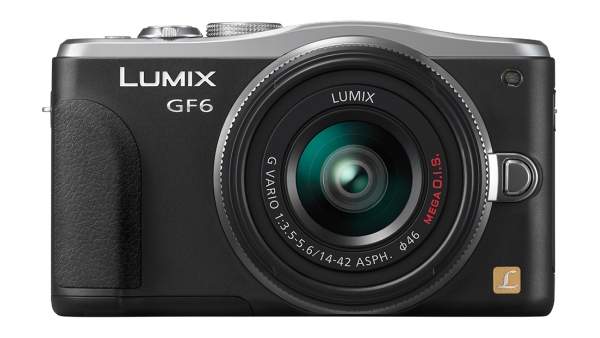Why you can trust TechRadar
The first thing you notice about the Panasonic GF6, when compared with its predecessor, is its chunkier exterior. This enables it to fit in the mode dial at the top of the camera and the flip screen at the back of the camera.
Some may appreciate these added benefits, but it does mean you'll need extra space in your pocket. Because it comes with a standard 14-42mm zoom, rather than last year's ultra slim power zoom, this camera looks more similar to the Panasonic GX1 than the Panasonic GF5.
However, the addition of this extra dial on the top of the camera makes it much easier to access the different modes of the Panasonic GF6. Previously you needed to venture into the menu in order to gain access to different shooting parameters.
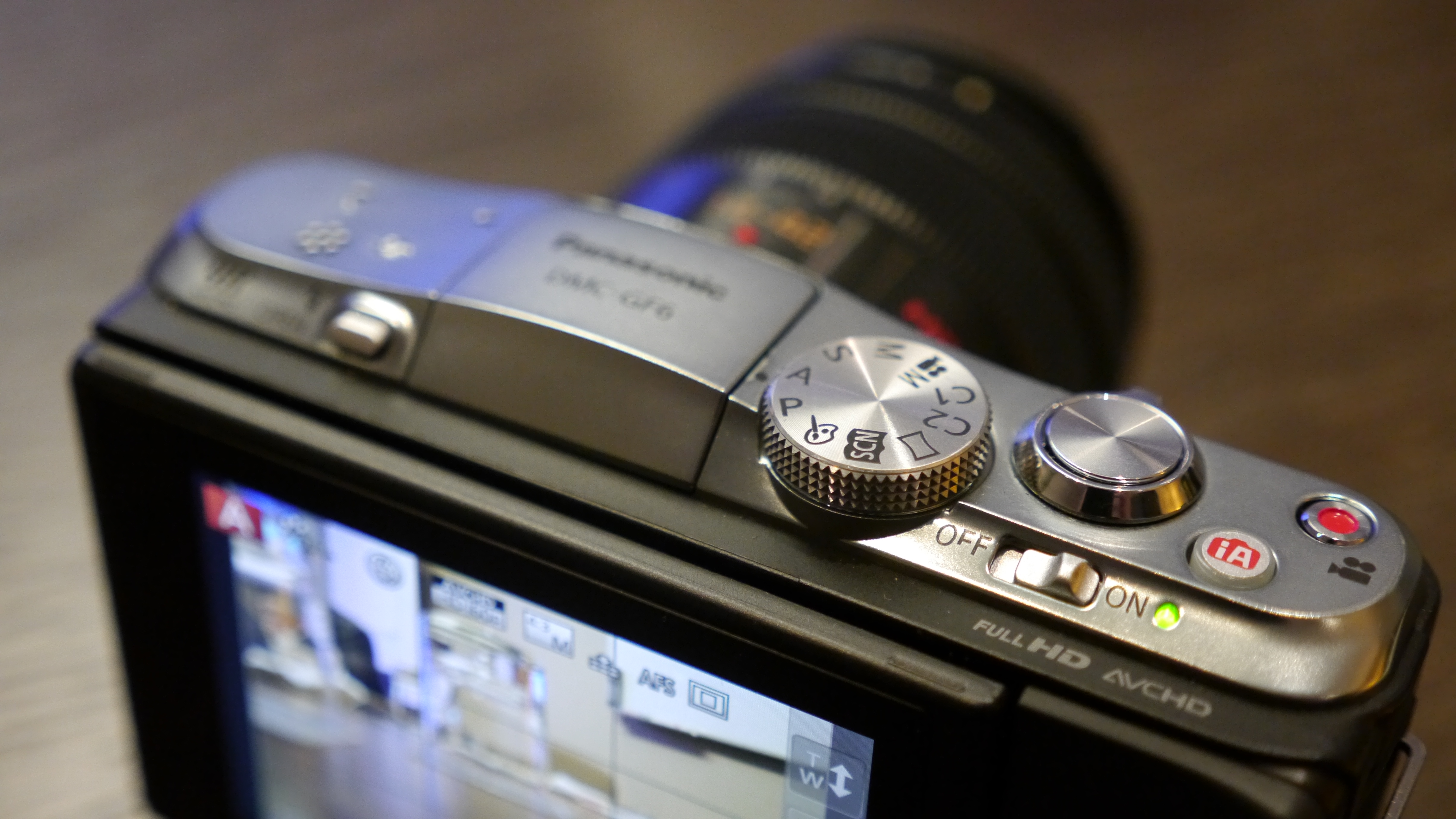
To activate fully automatic mode, there's a dedicated button just next to the shutter release. This makes it quick to switch from the more complicated modes to fully automatic, and has the added bonus of activating a blue LED light around the button to make sure you're aware that you're in the correct mode.
The mode dial features fully automatic mode, semi-automatic modes (such as aperture priority and shutter priority), scene modes and digital filters mode. There's also space for up to two groups of custom settings, which is useful if you often find yourself shooting with one particular setting, such as high sensitivity or monochrome.
Panasonic has expanded the range of digital filters available on the GF6. Unfortunately, however, these can only be accessed via the dedicated filter mode, meaning you lose control over other shooting elements such as aperture or shutter speed. Olympus cameras enable you to use art filters with P/A/S/M modes, which is a more flexible option.
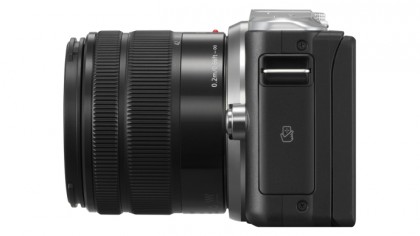
On the plus side, however, digital filters can be used while shooting in raw format, meaning you can keep a 'clean' version of the file if you change your mind down the line.
Like the Panasonic GF5, the Panasonic GF6 features a touchscreen, and this can be used for a variety of functions including navigating through the various settings and handily changing the autofocus point and firing off the shutter release if you want it to.
As with the other G series of compact system cameras, most of the commonly used settings can be accessed via a Quick Menu. Here you have the choice to use either the touchscreen to navigate through the different settings, or, for those who prefer it, the arrow keys on the back of the camera.
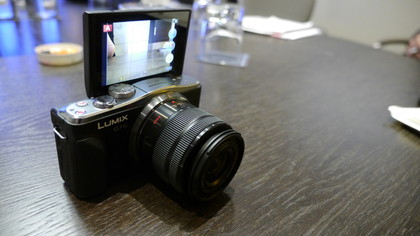
Panasonic has also found room to add an additional function button at the back of the camera, which you can assign a number of different parameters to.
Much of the rest of the navigation of the camera remains the same as previous GF series cameras, with a sensibly laid out menu that's easy to scroll through to find the options you need.
The front of the camera has a grip attached to it, which is moulded to the shape of a finger gripping it. This makes it feel very comfortable and secure in the hand, especially when shooting one-handed.
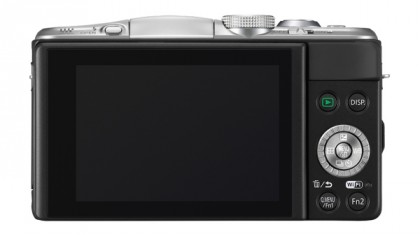
At the time of launch, the Panasonic GF6 is the only interchangeable lens camera to feature NFCconnectivity. This means that you can touch the camera to an NFC-compatible device - such as some smartphones or tablets - to have images and videos instantly transfer across. You can also use a smartphone or tablet as a remote control in this way.
As it stands, Apple doesn't have any products equipped with NFC, but the Samsung Galaxy S3 - the world's best-selling smartphone - does.
One of the most appealing features of the Panasonic GF6 is its new flip screen. Although it doesn't offer the same flexibility as a fully articulating device (such as the one on the Panasonic G5), it does keep the overall size down. When the screen is flipped 180 degrees to face the front, it is useful for self-portraits, and by doing this to the screen, the camera will automatically activate self-portrait mode.
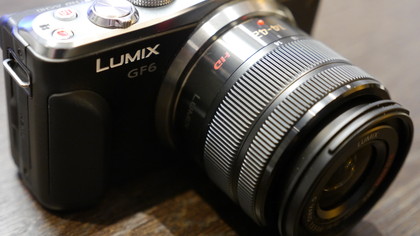
Self portrait mode basically activates the self-timer, and enables the Soft Skin function, although you can turn this off if you'd prefer. Another option for switching on the touch shutter appears on the screen too while in Self Portrait mode.
The Panasonic GF6 will come bundled with a new 14-42mm optic, which is smaller than the old manual 14-42mm lens that used to come packaged with G series cameras. It keeps the overall size of the camera down, but if you've got extra money to spare, we'd suggest you think about investing in the X power zoom lens, to make this closer to being a pocketable device.
One of the new features of the Panasonic GF6 is the introduction of Wi-Fi functionality. This gives you a number of useful options including the ability to remote control the camera via your iOS or Android smartphone or tablet, and upload images to various web services, such as Facebook.
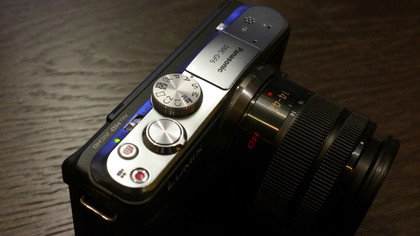
Setting up the Wi-Fi to use with your smartphone or tablet is relatively pain-free, while the free app that is downloadable for iOS and Android devices is easy to use. However, if you want to upload images straight to web services from the camera itself, you might find yourself quickly becoming frustrated with the device.
In order to upload directly to Facebook, Twitter and the rest from the Panasonic GF6, you need a Lumix Club account, which you can sign up for from the camera itself. However, you then need to access the Lumix Club website separately to activate various social media accounts.
Once you have done this, there's very limited functionality for uploading - for instance, you can't include a caption and there is a tendency for portrait orientation images to be uploaded in horizontal format.
Amy has been writing about cameras, photography and associated tech since 2009. Amy was once part of the photography testing team for Future Publishing working across TechRadar, Digital Camera, PhotoPlus, N Photo and Photography Week. For her photography, she has won awards and has been exhibited. She often partakes in unusual projects - including one intense year where she used a different camera every single day. Amy is currently the Features Editor at Amateur Photographer magazine, and in her increasingly little spare time works across a number of high-profile publications including Wired, Stuff, Digital Camera World, Expert Reviews, and just a little off-tangent, PetsRadar.
